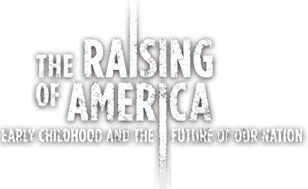Resources for Early Childhood Development
Below is a collection of resources available for you to download or add to Your Favorites. Search the collection using keywords and tags.
Make selections above to narrow results.
Are We Crazy About Our Kids?
Economists are clear: investing in high-quality early care and education is good for our kids and communities, and even pays for itself many times over. So, why aren’t we investing?
Add to Your Favorites
Remove from Your Favorites
The Child Olympics
The U.S. may still win the most gold medals in the Olympics every four years, but we are losing the child Olympics every day.
Add to Your Favorites
Remove from Your Favorites
The Family Leave Shuffle
Paid leave is the rule, not the exception, in every other rich and middle income nation. How is it that in the wealthiest nation on earth we ask so many parents to make a trade-off: you can take time to recover from childbirth, bond with and nurture your new baby, but you’ll have to forfeit your pay?
Add to Your Favorites
Remove from Your Favorites
Who's Paid What?
Since helping our babies and young children thrive is one of the most vital jobs in any nation, the people who do this work in the U.S. must be paid well, right?
Add to Your Favorites
Remove from Your Favorites
Can I Borrow a Diaper?
Food banks to feed the hungry have become as much a part of our economic landscape as tax breaks for billionaire hedge fund managers. Neither seems to provoke much surprise, alarm or anger anymore. But diaper banks?
Add to Your Favorites
Remove from Your Favorites
High/Scope Perry Preschool Study
The High/Scope Perry Preschool study examined the short- and long-term effects of a high-quality preschool education program for young children living in poverty, collecting data on the students through age 40. The program operated from 1962 to 1967 in Ypsilanti, Michigan.
Add to Your Favorites
Remove from Your Favorites
The New Achievement Gap
Income inequality is not the only gap that has been growing dramatically in the United States over the past forty years. The gap in educational achievement between the rich and everybody else has widened greatly as well.
Add to Your Favorites
Remove from Your Favorites
Speed Bumps or Off the Tracks?
Life is full of unexpected demands - the car breaks down, the kids get sick. For some families, these are merely speed bumps. But for other families, they can be thrown completely off the tracks.
Add to Your Favorites
Remove from Your Favorites
Does Cash Help?
Professor Jane Costello of Duke University Medical School was conducting a study of rural children in the Great Smokey Mountains of North Carolina, a quarter of whom were Cherokee, when the tribe opened a casino. This allowed Professor Costello to conduct a natural experiment because soon casino profits started flowing to Cherokee families and cut the Cherokee poverty rate by half.
Add to Your Favorites
Remove from Your Favorites
Are Debtors' Prisons Back?
This New York Times article and this episode of comedian John Oliver’s TV show illustrate a municipal practice which combines the entanglements of Kafka with the debtors' prisons of Dickens.
Add to Your Favorites
Remove from Your Favorites
Where Did the Wealth Go?
Workers in America have been some of the most productive in the world over the past century. But those same workers may not be the ones benefiting from their hard work.
Add to Your Favorites
Remove from Your Favorites
We're Number One!
Just a few decades ago, the U.S. was among the world’s leaders when it came to indicators of how well our children were doing. Today, we're Number One in a whole lot of other ways.
Add to Your Favorites
Remove from Your Favorites
9 Ways to Reduce Poverty
Proven programs like high-quality early care and ed and the nurse-family partnership can help buffer the effects of poverty. But if we really want to improve life prospects for poor kids we need to reduce the number of poor kids. Which means increasing their families’ incomes.
Add to Your Favorites
Remove from Your Favorites
Add to Your Favorites
Remove from Your Favorites
Where Did the Wealth Go? (PDF)
From 1948 to 1979, wages in America matched its explosive growth in productivity. But since then, productivity has risen dramatically and wages have barely moved at all.
Add to Your Favorites
Remove from Your Favorites
The Family Income Gap
Family income earned by the top 5% and the bottom 20% grew in tandem from the 1940s to the 1970s. But since then, income for the top 5% has grown and grown and grown while income for the bottom 20% has stagnated.
Add to Your Favorites
Remove from Your Favorites
The Income-Achievement Gaps
The gap in achievement scores between rich kids and poor kids has grown just as fast as the income gap.
Add to Your Favorites
Remove from Your Favorites
Trailer - Are We Crazy About Our Kids?
Economists rarely turn their attention to the world of early childhood and preschool. But with a wealth of scientific research pointing to the importance of a child’s earliest years, several economists are worried about our investments in early childhood.
Add to Your Favorites
Remove from Your Favorites


















